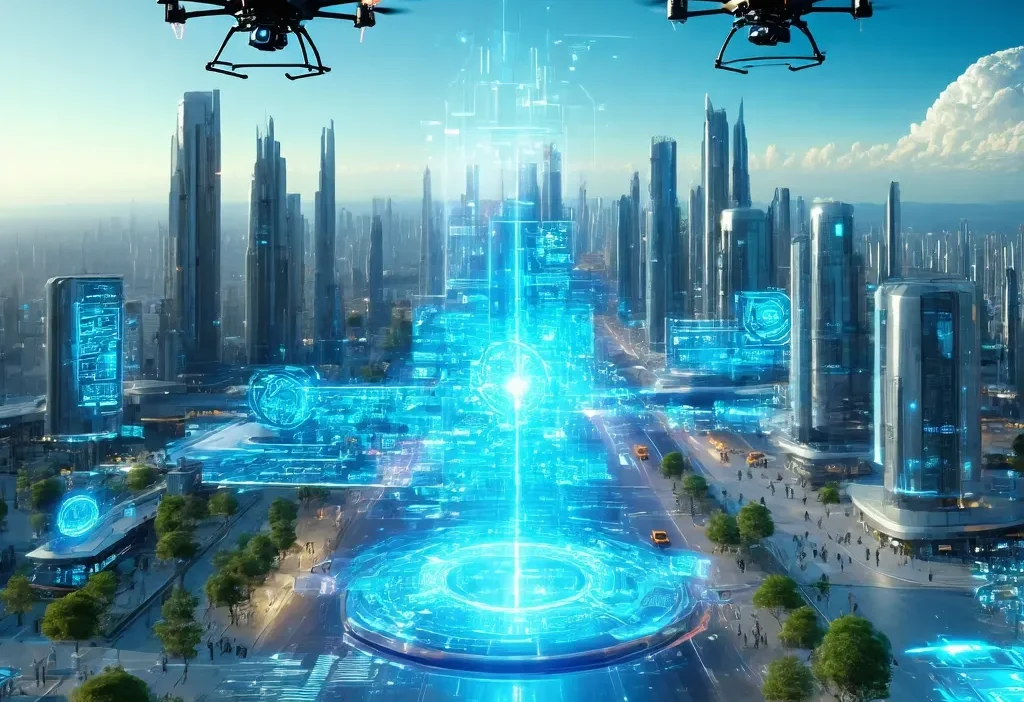How Artificial Intelligence Is Reshaping The Modern World
In the not-so-distant past, artificial intelligence (AI) was a concept reserved for science fiction novels and futuristic movies. Today, AI is an integral part of our daily lives, revolutionizing industries from healthcare to education and everything in between. This blog explores how AI is transforming various sectors and what the future holds.
The Impact of AI on Healthcare
AI’s influence on healthcare has been nothing short of transformative. Machine learning algorithms are now capable of diagnosing diseases with a high degree of accuracy, often surpassing human capabilities. For instance, platforms like IBM Watson Health use AI to analyze medical data and provide personalized treatment plans.
One of the most groundbreaking applications is in cancer detection. AI-powered tools can identify early signs of cancer in scans with remarkable precision, significantly improving patient outcomes. Additionally, AI is streamlining administrative tasks, allowing healthcare professionals to focus more on patient care.
AI in Finance: Enhancing Security and Efficiency
The financial sector has embraced AI to enhance security, improve decision-making, and provide personalized services. Algorithmic trading, powered by AI, allows for faster and more accurate market predictions, optimizing investment strategies.
- Fraud detection: AI algorithms can identify unusual patterns in transactions, preventing fraudulent activities in real-time.
- Customer service: Chatbots powered by natural language processing (NLP) provide instant support to customers, resolving issues efficiently.
- Investment advice: Robo-advisors use AI to offer tailored financial recommendations based on individual risk profiles and goals.
According to a report by McKinsey & Company, AI could save the banking sector up to $1 trillion annually by 2030 through automation and efficiency gains.
AI in Education: Personalized Learning for All
Educational institutions are leveraging AI to create personalized learning experiences, making education more accessible and effective. Adaptive learning platforms analyze students’ performance data to tailor content to their individual needs.
AI-powered tools like Khan Academy offer customized lesson plans, ensuring that each student progresses at their own pace. Moreover, virtual reality (VR) and augmented reality (AR) enhanced by AI are creating immersive learning environments, making complex subjects more engaging.
The Future of AI: Opportunities and Challenges
As AI continues to evolve, it presents immense opportunities but also challenges that need addressing. Issues like data privacy, algorithmic bias, and job displacement must be tackled to ensure ethical and sustainable AI development.
‘The future of AI is bright, but it requires careful navigation to maximize benefits while minimizing risks.’ – Keith Jones
Investments in AI research and development are crucial. Countries like China and the United States are leading the charge, but global collaboration will be key to harnessing AI’s full potential responsibly.
Conclusion
Artificial intelligence is undeniably reshaping our world, offering solutions to some of humanity’s most pressing challenges. From healthcare to education, its applications are vast and transformative. As we move forward, it’s essential to adopt a proactive approach, ensuring that AI development aligns with ethical standards and serves the greater good.
Stay tuned for more insights into the fascinating world of AI!





